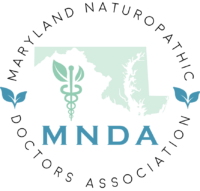
The MNDA mission is to advance awareness and recognition of Naturopathic Doctors. As part of our mission, we are pleased to share information and knowledge regarding the many benefits of naturopathic medicine and whole healthcare. The information provided is not intended to diagnose or treat or assert a course of treatment.
5 Preconception Tips to Enhance Fertility
Dr. Skye Stewart
Why I Take BPH Serious – and What I Do
Dr. Kristaps Paddock
So you’ve made the decision that you want a little addition to your family. CONGRATS! But where do you start? You’ve already started some prenatal supplements (great!), but you want to do more.
Pregnancy journeys are not always as straightforward and simple as most women may think. I’m here to inform you of how you can increase your odds at conceiving and optimize your health and your baby’s health while you are at it.
Factors that Affect Fertility
Our day-to-day life of always rushing around, speeding from one task to another, quick meals on the go, and up late scrolling through Pinterest does nothing good for our fertility health.
This lifestyle that we are all guilty of living has its downfalls. One major downfall is its effects on our health, and yes, our success with conception.
Gut Health
The health of your gut has a huge role in determining your overall health. Your gut can affect your hormones, your immune system, how you feel and think, the way your body absorbs nutrients, and can even impact the levels of inflammation within your body.
A healthy gut can:
Enhance your baby’s microbiome
Reduce the likelihood of postpartum depression
Prevent GBS (Group B Streptococcus)
Encourage optimal immune system functioning
Your gut (or your gut microbiome, more specifically) is made up of different kinds of bacteria (aka good and bad bugs). These bacteria are necessary for optimal bodily functions and processes.
The issue occurs when these types of bacteria become imbalanced (also known as dysbiosis). This is when your harmful bacteria overgrow and flourish while your beneficial bacteria are reduced.
What causes these good bugs to die off and harmful bugs to overgrow? MANY THINGS!
Stress
Excess sugars
Processed foods
Antibiotics
Food additives
Toxins (pesticides, hidden chemicals in daily products)
Your estrobolome, which is also an environment of a variety of bacteria, also resides in your gut. This bacteria, however, is responsible for estrogen regulation.
Your estrobolome is capable of metabolizing and modulating the body’s circulating estrogen. If these bacteria aren’t balanced, it could lead to estrogen imbalances like estrogen dominance.
Estrogen plays a huge role in fertility by creating an environment that makes pregnancy possible. It regulates your menstrual cycle and controls your uterine lining’s growth during the first part of the cycle. This is why you should prioritize gut health, so your estrogen levels stay balanced!
Hormone Imbalance
Speaking of hormones… while the health of your gut can highly influence estrogen levels, other factors could also impact your hormone levels. Since your fertility is significantly influenced by your hormones (aka chemical messengers), you should ensure they are at optimal levels to ensure the right messages are communicated effectively.
While estrogen is important, we don’t want to forget about your thyroid, cortisol, progesterone, and testosterone too! If any of these are out of whack, it could inhibit successful conception.
Like I stated earlier, about our busy, stressful lives… well, this can hugely impact your hormone levels. When your adrenals are overworked by attempting to produce cortisol in response to stress, they can eventually burn out.
When your adrenals aren’t working properly, it can have a cascade of effects on all your other hormones, including thyroid, progesterone, insulin, estrogen, and even testosterone. Keep in mind that poor diet, toxic exposure, and other factors can also impact your hormone levels.
Inflammation
Inflammation is a basic way that your body reacts to an infection or other injury. Inflammation is a type of nonspecific immune response. The issue with our lifestyle choices is that it increases this inflammatory response. We give our body processed foods, sugars, and toxins that signal inflammation.
This inflammation doesn’t just come and go like it’s meant to. Inflammation stays around because we are continuously bombarding our body with stressors (toxins, foods that we are sensitive to, excess sugars, stress, etc.) that activate our inflammatory response.
When inflammation is apparent throughout your body, it can lead to insulin resistance. Insulin resistance may affect fertility by contributing to endometriosis, PCOS, implantation failure, and recurrent miscarriages.
Nutrient Deficiencies
Having the right vitamins and minerals is extremely vital in creating a new human being! However, the American Standard Diet doesn’t contain nearly enough of the nutrients that we need in general, and definitely not enough for a healthy pregnancy.
Even if you are consuming lots of vegetables, fruits, and greens, your body could not be absorbing these nutrients as optimally as it should because of poor gut health. Even if you are drinking green juices and eating the “right” foods, if your body can’t absorb them, it’s not doing your body and future baby any good.
Here are contributing factors to nutrient deficiencies:
Poor diet
Poor gut health
Food sensitivities
Medications interfering with the absorption
Suboptimal nutrients in the soil
5 Preconception Tips to Enhance Fertility
You can see how all these factors that could affect your fertility are interconnected. To reach a healthy state and have the best chances of a healthy conception, you’ll want to focus largely on changing your lifestyle behaviors.
I know this can be a challenge because adopting a new behavior can take time! But doing simple changes in your daily life can make dramatic changes in your health and ultimately your fertility outcomes.
- Manage Stress
Practice some meditation, yoga, or even breathing exercises to reduce your stress. This helps activate your parasympathetic nervous system. The parasympathetic nervous system allows your body to come out of the “fight or flight” state and into the “rest and digest” state, which focuses on digestion and reproductive processes. - Eat Organic, Whole Foods
Fueling your body with nutrient-rich foods is key to preparing your body for conception. When you choose organic, you are avoiding those toxic pesticides that disrupt your microbiome. - Avoid Environmental Toxins
Smoking, alcohol, heavy metals, endocrine-disrupting chemicals, solvents, pesticides, pollution, and radiation have all been linked to miscarriage, preterm delivery, low birth weight, and birth defects.
Environmental toxins can also play a role in everything we previously mentioned above- damaging your gut health, increasing inflammation, reducing nutrient absorption, and contributing to hormone imbalance. If a mother is exposed to high levels of any of these chemicals, issues with conception could occur.
- Get in Daily Movement
Getting in gentle movement every day can help promote a healthy lifestyle and wellness in general, but moving your body will also be extremely beneficial for when you become pregnant.
Getting in shape now is a good idea because it can help you maintain that daily movement and routine during pregnancy. It can help keep the baby healthy and help with your endurance during labor.
- Get Tested by a Functional Medicine Provider
Before you start trying for a baby, ensure your health is optimized as it will give you the best chance to conceive and make sure that your baby is set up to live a healthy life.
Functional testing will allow you to discover if you have underlying imbalances within your body, nutrient deficiencies, bacteria overgrowth, toxins, or any other issues going on. Addressing these issues first will allow your body to function properly and give you the best chance to conceive.
Let me open by saying that I won’t be providing any citations for this article. It’s meant to be informal and follow the format of a clinical pearl rather than be a literature review. It’s not that the research isn’t important, but as we all know, research doesn’t always translate perfectly into clinical practice, and I’d like to share my experience.
So, BPH (benign prostate hyperplasia). It’s important, but a lot of men shrug this off. For some, it’s a matter of not wanting to talk about their prostate health, let alone have a prostate exam. For others, it’s considered “part of aging” and gets ignored. No one wants to talk about their prostate, and so they don’t and clinicians don’t ask.
Unfortunately, BPH is an extremely important condition to ask about and treat. Untreated, BPH can cause urinary obstruction and even death, a fact in stark contrast to the attitude most of us take towards it.
In most cases, though, the big issue with BPH is that it disrupts sleep. It’s very common for middle-aged-to-older men in my practice to wake twice a night to urinate, and some wake up to six times a night. This isn’t just inconvenient, this has a significant impact on men’s health, contributing to chronic fatigue and a wide range of health conditions, as men are not able to get the restorative sleep they need.
To treat BPH, I use two supplements. There are others of course, but there are two primary ones I use. Before I tell you what they are, however, let me tell you how to evaluate other prostate support supplements.
Firstly, any decent prostate health product is going to have 320 mg of saw palmetto extract, and at least 75-100 mg of nettle root extract, if not more. If you’re going to recommend a prostate support product, it must contain at least these two ingredients.
The second thing to look at is what condition the product addresses. In the same way that men are embarrassed to talk about their prostates, supplement companies are embarrassed to talk about their prostate support products. Some products are for prostate cancer, others for BPH, some both. This matters because prostate products that emphasize cancer prevention may not adequately support urinary function. If your patient is waking six times a night to urinate, antioxidants are not their priority right now.
Lastly, pygeum. There are efforts underway to grow and harvest this more sustainably, but historically it has not been harvested this way. Please investigate any products you recommend. Secondly, though… it really works. In concert with other herbs, pygeum significantly improves urinary flow. In your most severe cases, you may want to prioritize this herb, though ideally for a short period of time, after which you can switch to an alternate product.
Now onto the juicy part – what do I actually use? Let me clarify that I have absolutely no economic stake in either of these companies or products. This is important information for you to have, and that’s why I’m sharing this.
The first is Prostate 5LX by New Chapter. This is a commercially available brand but it’s high quality, that balances BPH support and antioxidants. You can use this as directed for long term preventive support or you can safely double the dose for more active symptom treatment. Also, it’s pygeum-free.
The second is Saw Palmetto Plus by Pure Encapsulations. Pure Encapsulations makes three prostate products, called Saw Palmetto 320, Saw Palmetto Plus, and SP Ultimate – see what I mean about companies being embarrassed? Saw Palmetto 320 is ONLY saw palmetto and that’s not enough; SP Ultimate is targeted to prostate cancer. Saw Palmetto Plus includes saw palmetto, a high dose of nettle root, and 40 mg of pygeum. This is my go-to supplement when I need to aggressively treat BPH symptoms.
And that’s it! Please ask your men about BPH symptoms, get them rested, get them healthy, and get them living their best lives.
